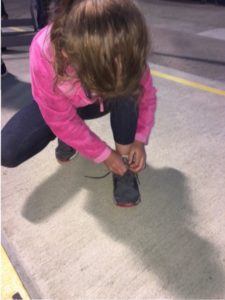Developmental Tips For Parents – Helping You Help Your Child
Infant Developmental Tips:
*Limit the use of positioning devices such as swings and bouncers. Too much time in these devices can lead to a mishappen head and delays in development. Place your infant on their tummy to play several times throughout the day. Avoid the use of walkers, the rock and play Sleeper and Bumbo Seat for safety and developmental reasons.
*When your child is ready to transition to baby food, let them get messy and feel the food on their face, lips, and hands.
*To aide in feeding and speech development, use an open cup, straw cup, or non-spill open cup instead of a hard spout sippie cup.
*When your infant starts walking and through the toddler years, have them wear closed toed supportive gym shoes, no sandals or flip flops.
*Talk to your baby. Read to your baby.
Nutrition:
*Offer your child a variety of foods with different flavors, textures, and temperatures.
*Do not allow them to graze throughout the day.
*Do not insist they clean their plate. They know when they are full.
Let Them Play and Explore
*Children learn to do new things through exposure to new things.
*Keep them active! Limit time spent watching TV or on electronic devices. Children under the age of 2 should not have any screen time. Children ages 2-5 should be limited to 30 minutes per day and children over 5 no more than 2 hours per day (per AAP).
*Let them create their own crafts. When we take over their project, we are telling them that we can do it better.
*Let them get messy!
Behavior
*Be consistent with discipline and expectations. Be sure the expectations are appropriate for the age of your child.
*Make sure your child has the language to express their wants and needs
W – Sitting
W – sitting is when a child sits on the floor with their bottom touching the ground and their feet out to the side of them while their knees are bent. Too much time spent in this position can cause your child to walk pigeon toed.
Encourage Independence
*Teach them how to zip their own coat and tie their own shoes. Tie shoes should be purchased when your child is 4-5 years old, as the skill should be mastered when they are 5.
*Place items in your house where they can reach them. For example, install hooks in your closet so they can hang their own coat.
If you have a concern regarding your child, do not wait! Children grow up fast! Share your concerns with your child’s pediatrician right away. ABC can help evaluate the concerns and teach you to teach your child! Visit us at https://www.abcpediatrictherapy.com for more tips and tricks.
 Skip to content
Skip to content